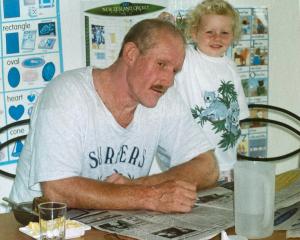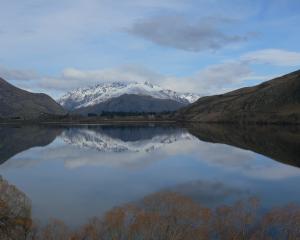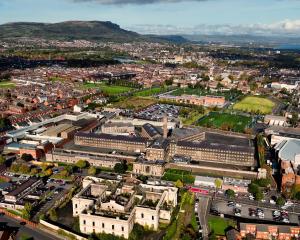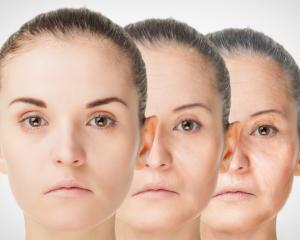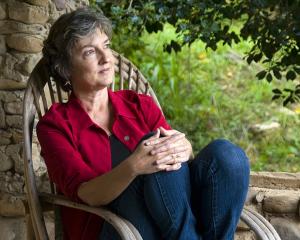
I don’t often communicate with Andrew; the last time we talked was over six months ago. In fact, he once lived in Romania for three months before I realised he was in the same hemisphere as me. Needless to say, I called him immediately.
As it turns out, Andrew wanted to tell me that he was engaged to be married. I was ecstatic. His fiancee, Sharnea, is an incredibly lovely young woman. She completely understands the eccentricities of the Balchin family — in fact, she contributes to them — and I am delighted that she will soon officially be my sister. But during our conversation, my joy turned to consternation when I learnt that Andrew and Sharnea hadn’t yet taken up the opportunity to be vaccinated.
I didn’t know how to approach the situation. I had no idea how to convince them of the importance of being vaccinated. And knowing about the wave of Delta sweeping through the country, I found myself panicking, staring at the myriad pixels that made up my brother and his fiancee, almost wishing that I could reach through the computer screen and across the oceans to physically shake them by the shoulders.
In the past, I have dismissed anti-vaxxers and vaccine-hesitant folk with immediate frustration, if not anger. I have unceremoniously lumped them together in my mind as a uniformly idiotic bunch of ignorant conspiracy theorists, selfishly prattling on about personal freedoms at the expense of the ill, elderly, disabled, and immunocompromised.
But there are also those people who have genuine concerns about the Covid vaccine — in New Zealand, specifically the BioNTech-Pfizer vaccine. Andrew and Sharnea told me they were worried about the speed at which the vaccine was developed. Other friends and acquaintances have expressed reservations about the vaccine’s components, the various side-effects and associated complications, or the fear of contracting Covid itself from the vaccine. Add to this the avalanche of urban myths, misinformation, and vaccine-related horror stories plummeting down social media timelines, and it’s no wonder so many people are hesitant about getting the jab.
It’s also vital to understand the completely valid distrust of the medical system exhibited by minority — particularly disenfranchised and exploited — communities. Modern medicine, from gynaecology to psychiatry, is a bright, seemingly brilliant and fully accessible tower built upon a dark and crumbling foundation of abuse, racism, genocide and exploitation. Don’t believe me? Google the Tuskegee study.
Maori face considerable disparities in health and medical treatment, not to mention institutionalised racism and a shady history of medical neglect and abuse. The royal commission into New Zealand’s state care system, for example, found that those most frequently abused by the state and medical authorities were from marginalised and disadvantaged communities, including disabled people, women, girls and particularly Maori and Pacific people.
First of all, it’s important to pause and listen to the concerns of the vaccine-hesitant. Given the pandemonium of the past 22 months, it’s no wonder folk are feeling uncertain and concerned.
Social and behavioural scientists have been telling us for ages about the importance of fostering long-term, in-person relationships between local governments and healthcare providers, and local leaders and residents. A familiar, trustworthy face can do wonders for improving vaccine uptake.
I have enormous respect for the incredible mahi of folk such as Maori Women’s Welfare League national president Prue Kapua, who is going above and beyond to address the public’s concerns, criticise the Eurocentric, one-size-fits-all nature of the Government’s vaccine rollout, and gently encourage Maori to get vaccinated.
It can be difficult to wade through the oceans of medical jargon, obfuscating rhetoric, and intricate technical diagrams, not to mention the inaccessibility of most medical journals to the general public. The BioNTech-Pfizer ingredient list certainly seems incomprehensible and intimidating. But it’s important to remember that all food and drink is made up of chemical substances, most of which are largely harmless, if not actively necessary for survival.
For all those frustrated by anti-vaxxers and vaccine-hesitant friends, family and acquaintances, I would urge patience, encouragement and friendliness.
For those who are vaccine-hesitant themselves, I urge you to seek out trustworthy, reputable information on the BioNTech-Pfizer vaccine.
Health.govt.nz is a fantastic resource, as is anything produced by the indomitable Siouxsie Wiles — her articles at The Spinoff are particularly accessible, interesting, and informative.
Covid isn’t leaving us at any point soon. It’s the unwanted guest lingering in the kitchen, eyeing up the half-full bottle of wine on the counter, and menacingly staring at your elderly grandmother.
But in order for life to return to some semblance of normality — in order for the interminable lockdowns to be lifted — the BioNTech-Pfizer vaccine needs to be distributed throughout all New Zealand communities.
Please do your part, and if you are medically able, get yourself vaccinated. Kia kaha, and remember: we’ve got this.
• Jean Balchin, a former English student at the University of Otago, is studying at Oxford University after being awarded a Rhodes Scholarship.


